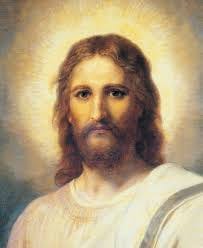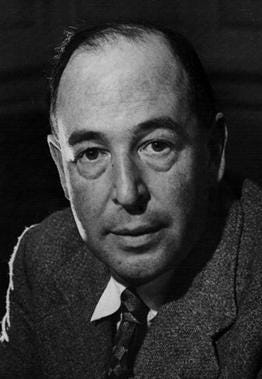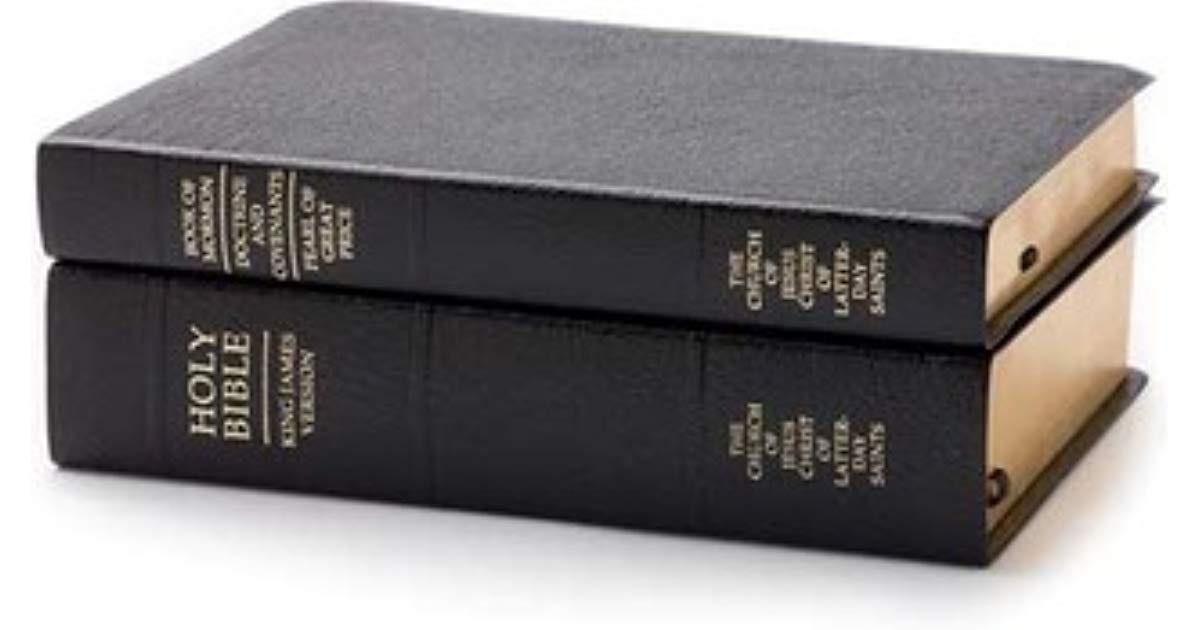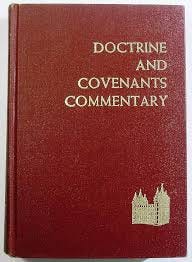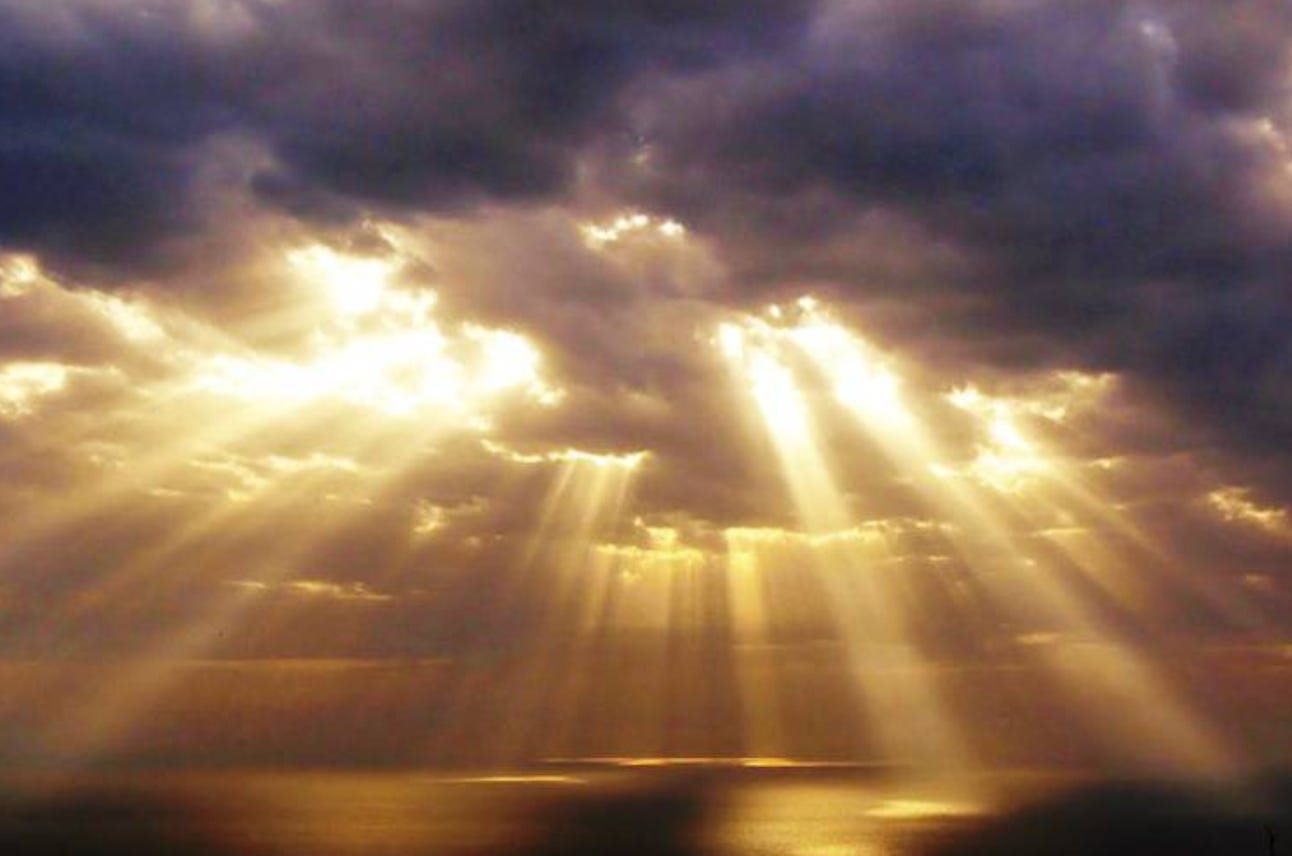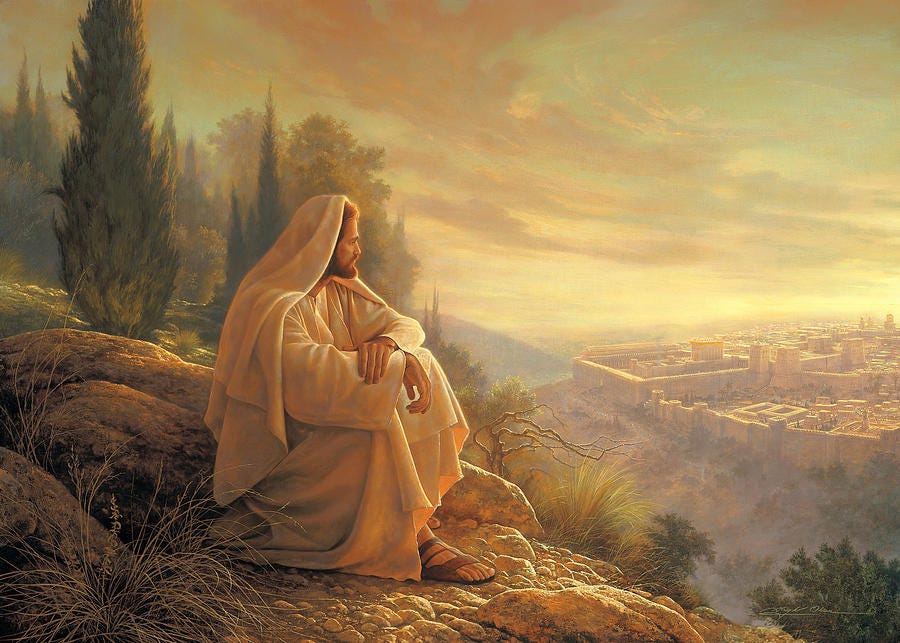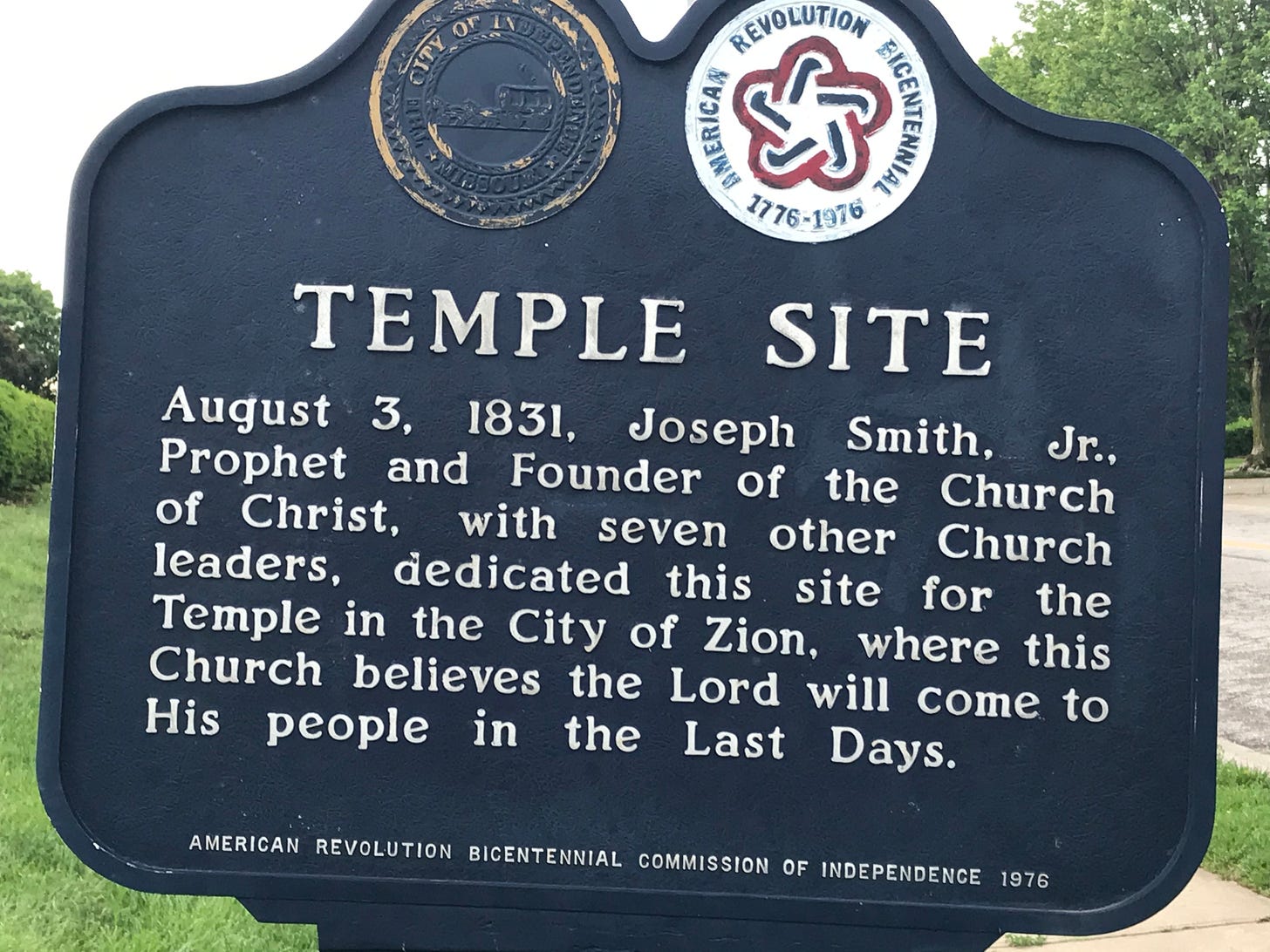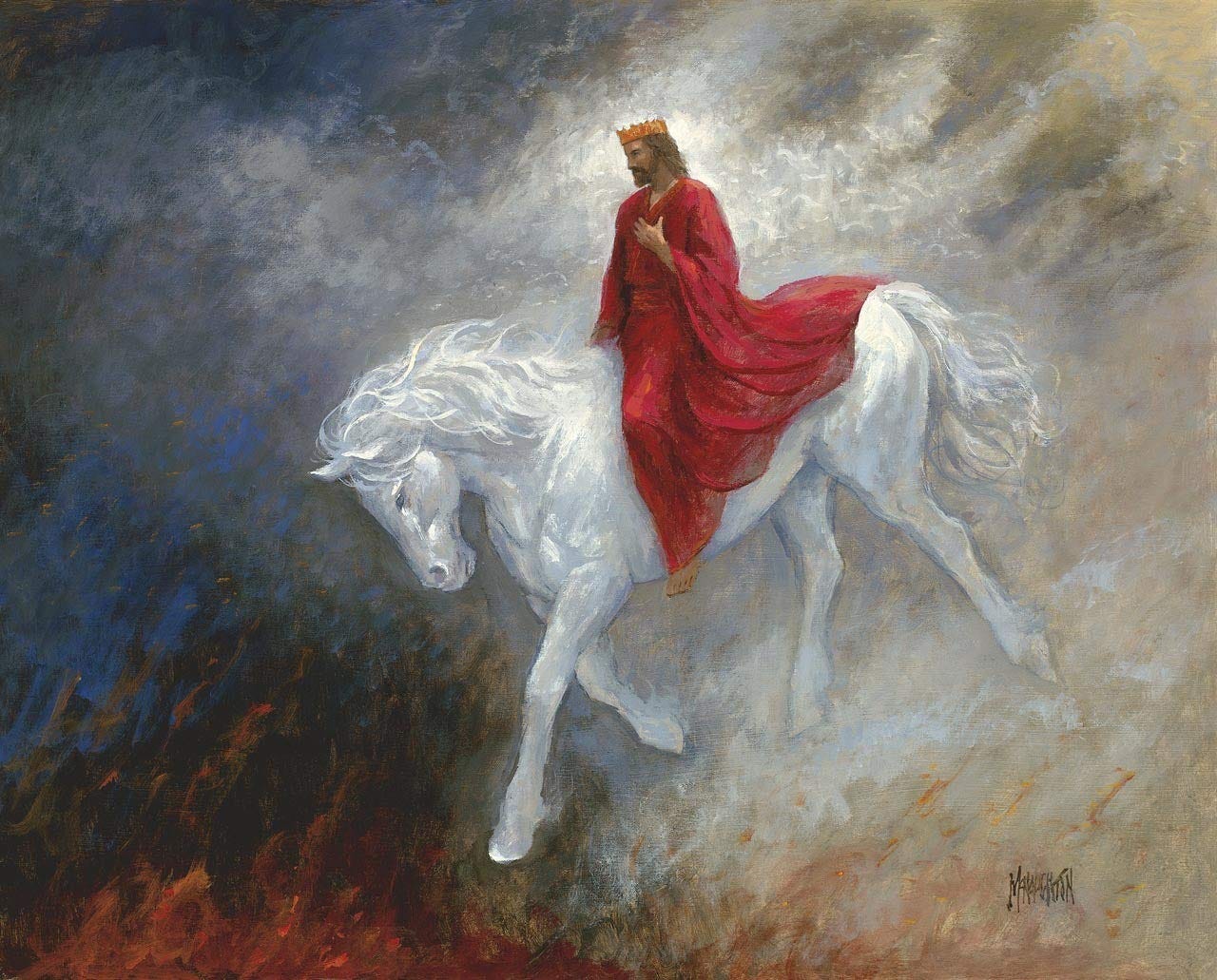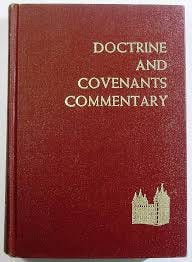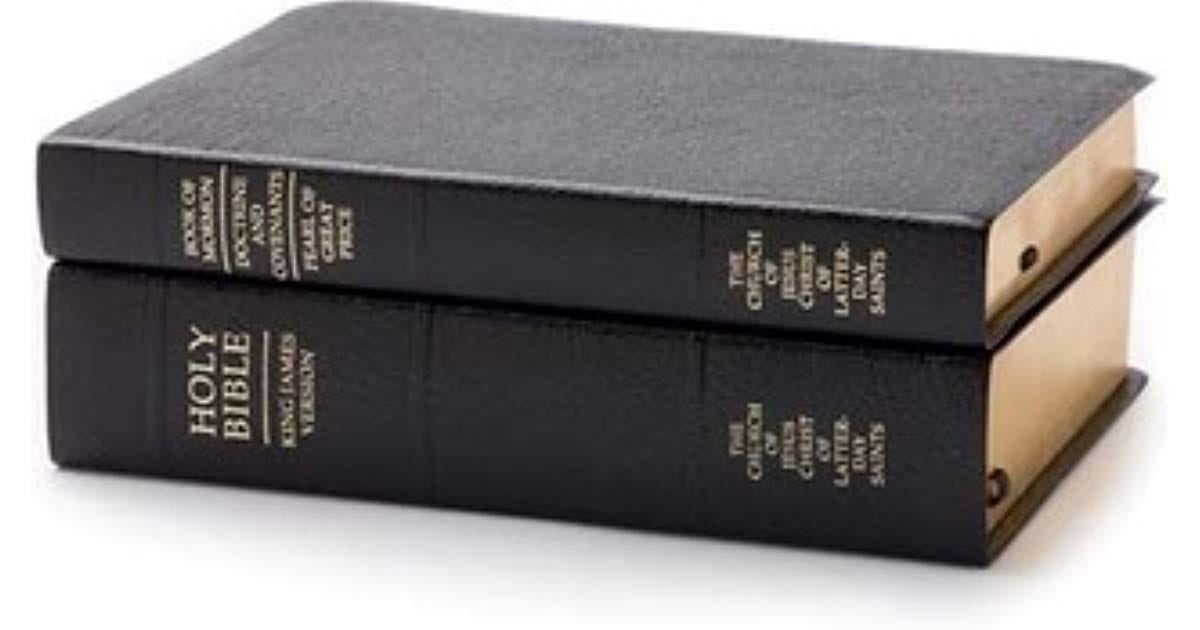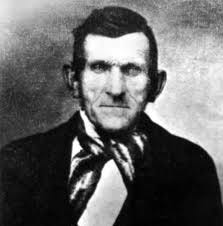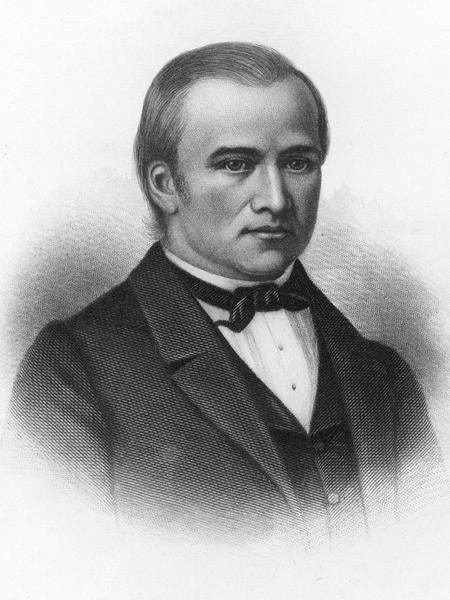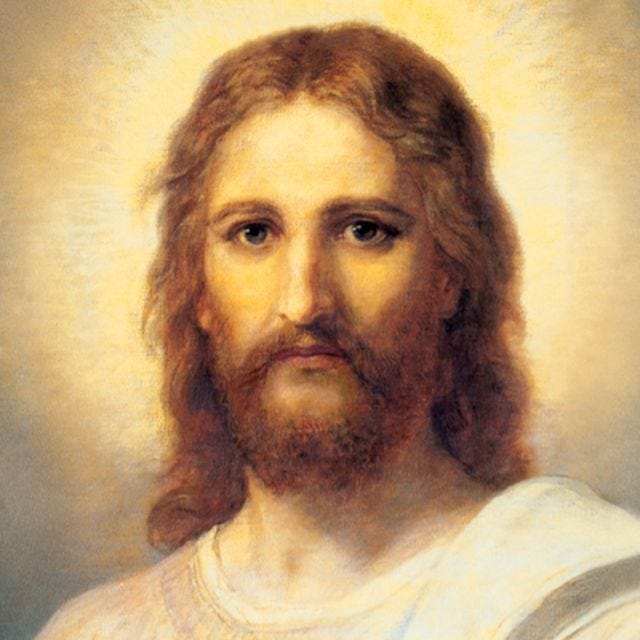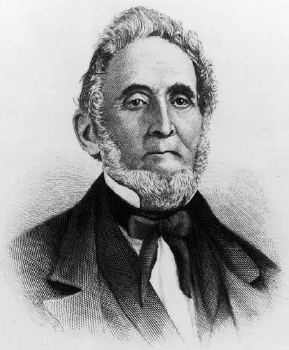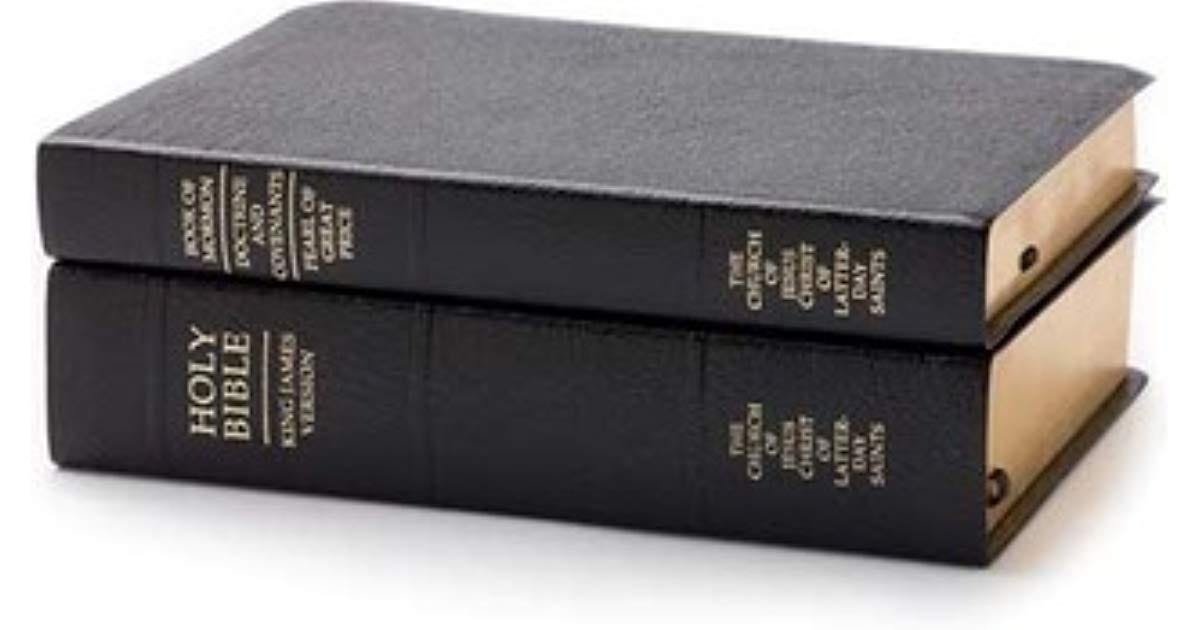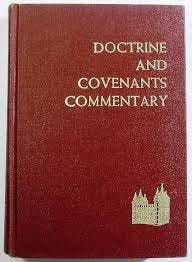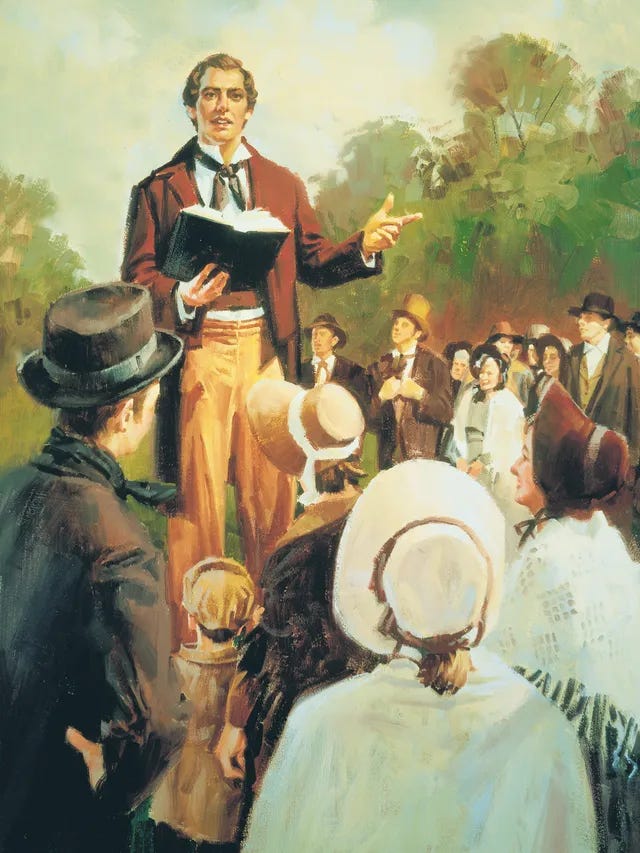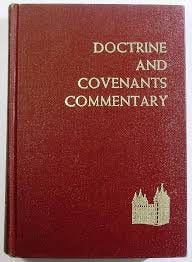With the historical background that I outlined in the previous post in mind, let’s examine and appreciate this revelation in Doctrine and Covenants 63 a piece at a time:
Hearken, O ye people, and open your hearts and give ear from afar; and listen, you that call yourselves the people of the Lord, and hear the word of the Lord and his will concerning you.
Yea, verily, I say, hear the word of him whose anger is kindled against the wicked and rebellious;
Who willeth to take even them whom he will take, and preserveth in life them whom he will preserve;
Who buildeth up at his own will and pleasure; and destroyeth when he pleases, and is able to cast the soul down to hell.
Behold, I, the Lord, utter my voice, and it shall be obeyed. (D&C 63:1-5)
This is the Lord Jesus Christ speaking.
This reminds me of the Lord’s revelation to Joseph Smith, Oliver Cowdery, and David Whitmer in June of 1829 in which He declared:
And I, Jesus Christ, your Lord and your God, have spoken it.
These words are not of men nor of man, but of me; wherefore, you shall testify they are of me and not of man;
For it is my voice which speaketh them unto you; for they are given by my Spirit unto you, and by my power you can read them one to another; and save it were by my power you could not have them;
Wherefore, you can testify that you have heard my voice, and know my words. (D&C 18:33-36)
When the Lord speaks, He demands our full attention, listening ears, and open hearts. He speaks to everyone, but particularly to His people, or to those who call themselves “the people of the Lord.” This powerful introduction and address to His people reminds me of the first direct citation of entire passages from Isaiah that Nephi records in his first book:
Hearken and hear this, O house of Jacob, who are called by the name of Israel, and are come forth out of the waters of Judah, or out of the waters of baptism, who swear by the name of the Lord, and make mention of the God of Israel, yet they swear not in truth nor in righteousness.
Nevertheless, they call themselves of the holy city, but they do not stay themselves upon the God of Israel, who is the Lord of Hosts; yea, the Lord of Hosts is his name. (1 Nephi 20:1-2)
They call themselves “of the holy city.” They call themselves “the people of the Lord.” These introductory declarations from the Lord in this section and in the words of Isaiah remind me that the Lord draws a distinction between those who merely “call themselves” of “the holy city” or “the people of the Lord,” and those who truly are. This is a rebuke to those of us who call ourselves “Saints,” or “members of the Church of Jesus Christ of Latter-day Saints,” who have been baptized, make covenants with the Lord, and make mention of the God of Israel, but not in truth or righteousness. This rebuke is also reminiscent of another passage from the Book of Isaiah:
Wherefore the Lord said, Forasmuch as this people draw near me with their mouth, and with their lips do honour me, but have removed their heart far from me, and their fear toward me is taught by the precept of men:
Therefore, behold, I will proceed to do a marvellous work among this people, even a marvellous work and a wonder: for the wisdom of their wise men shall perish, and the understanding of their prudent men shall be hid. (Isaiah 29:13-14)
The beginning of Section 63 in the Doctrine and Covenants reminds me of what the Lord requires of us. He requires our hearts and willing minds. He requires our whole soul. He wants us to draw near to Him with our hearts and our whole soul, not merely with our mouths, honouring Him only with our lips, or with sacrifices and ceremonies. Again, Isaiah put it best:
To what purpose is the multitude of your sacrifices unto me? saith the Lord: I am full of the burnt offerings of rams, and the fat of fed beasts; and I delight not in the blood of bullocks, or of lambs, or of he goats.
When ye come to appear before me, who hath required this at your hand, to tread my courts?
Bring no more vain oblations; incense is an abomination unto me; the new moons and sabbaths, the calling of assemblies, I cannot away with; it is iniquity, even the solemn meeting.
Your new moons and your appointed feasts my soul hateth: they are a trouble unto me; I am weary to bear them.
And when ye spread forth your hands, I will hide mine eyes from you: yea, when ye make many prayers, I will not hear: your hands are full of blood. (Isaiah 1:11-15)
Therefore, what does the Lord require of us, especially of those of us who call ourselves “Saints” and “the people of the Lord”? Isaiah explains:
Wash you, make you clean; put away the evil of your doings from before mine eyes; cease to do evil;
Learn to do well; seek judgment, relieve the oppressed, judge the fatherless, plead for the widow.
Come now, and let us reason together, saith the Lord: though your sins be as scarlet, they shall be as white as snow; though they be red like crimson, they shall be as wool.
If ye be willing and obedient, ye shall eat the good of the land:
But if ye refuse and rebel, ye shall be devoured with the sword: for the mouth of the Lord hath spoken it. (Isaiah 1:16-20)
Or in the Gileadi translation:
Wash yourselves clean: remove your wicked deeds from before my eyes; cease to do evil.17 Learn to do good: demand justice, stand up for the oppressed; plead the cause of the fatherless, appeal on behalf of the widow.18 Come now, let us put it to the test, says Jehovah: though your sins are as scarlet, they can be made white as snow; though they have reddened as crimson, they may become white as wool.19 If you are willing and obey, you shall eat the good of the land.20 But if you are unwilling and disobey, you shall be eaten by the sword. By his mouth Jehovah has spoken it. (Isaiah 1:16-20)
The Lord speaks, and He shall be heard and obeyed. We may call ourselves “the people of the Lord” and of “the holy city,” we may draw near unto the Lord with our mouth or honour Him with our lips, we may offer a multitude of sacrifices and vain oblations, tread the courts of the Lord, assemble on the Sabbaths and in solemn meetings, and “spread forth” our hands and “make many prayers.” This sounds a lot like what we habitually and sometimes unreflectingly do as “Mormons” or members of the Church of Jesus Christ of Latter-day Saints in LDS chapels and in Temples. But the Lord wants our hearts our soul. C.S. Lewis articulates a similar truth clearly and succinctly:
The Christian way is different: harder, and easier. Christ says "Give me All. I don't want so much of your time and so much of your money and so much of your work: I want You. I have not come to torment your natural self, but to kill it. No half-measures are any good. I don't want to cut off a branch here and a branch there, I want to have the whole tree down. I don't want to drill the tooth, or crown it, or stop it, but to have it out. Hand over the whole natural self, all the desires which you think innocent as well as the ones you think wicked — the whole outfit. I will give you a new self instead. In fact, I will give you Myself: my own will shall become yours."
Both harder and easier than what we are all trying to do. You have noticed, I expect, that Christ Himself sometimes describes the Christian way as very hard, sometimes as very easy. He says, "Take up your Cross" — in other words, it is like going to be beaten to death in a concentration camp. Next minute he says, "My yoke is easy and my burden light." He means both. And one can just see why both are true. (C. S. Lewis, Mere Christianity, p. 105)
But even the great C. S. Lewis could have benefitted from the additional revelations that the Lord gave to His early Saints through the Prophet Joseph Smith. In this section, 63, once the Lord has commanded our attention and described more of His attributes, attitude, and actions, He demands not only our full attention but our willing obedience.
Regarding these verses Smith and Sjodahl observe:
God Demands the Attention of His People.
Our heavenly Father is the sovereign Ruler of the worlds, and when He speaks, He is entitled to our undivided attention and implicit obedience.
Hearken *** open your hearts *** give ear *** listen] Note that God expects His people to exert themselves to learn His will and do it. He does not reveal His will to us without an earnest effort on our part to learn it. To “hearken” is to hear, as a judge hears a case one which he must give a decision. To “open” one’s “heart” is to listen to the Word of God with love and affection, and with an eager desire to understand it and to do the will of God. To “give ear” is to devote the sense of hearing to the search for truth, and to “listen” is to give attention, lest any word escape.
Anger is kindled against the wicked] It is necessary to hear and obey, lest we be found among those against whom His anger is kindled. God is love, but He is also a “consuming fire” (Heb. 12:29), in the presence of rebellion and apostasy. The same sun that gives life to the humblest living plant parches the grass that is dead.
Who willeth to take *** preserve] It is necessary to hear and obey, because God is the Lord over life and death. He takes life and preserves life at will.
Who buildeth up *** and destroyeth] There are always sufficient reasons for the decrees of God. He is not governed by caprice; nor by selfishness, but by love; yet He is supreme and from His decrees there is no appeal. As Paul expresses it, “Nay but, O man, who art thou that replieth against God? Shall the thing formed say to him that formed it, why hast thou made me thus? Hath not the potter power over the clay, of the same lump to make one vessel unto honor, and another unto dishonor” (Rom. 9:20, 21)? This is perhaps one of the things in the writings of Paul to which Peter refers as “hard to be understood.” (II. Pet. 3:16), but Heber C. Kimball’s comment in his famous sermon on the Clay and the Potter removes every difficulty from it. He says:
“The potter tried to bring a lump of clay into subjection, and he worked and tugged at it, but the clay was rebellious and would not submit to the will of the potter, and marred in his hands. Then of course he had to cut it from the wheel and throw it into the mill to be ground over in order that it might become passive; after which he takes it again and makes of it a vessel unto honor, out of the same lump that was dishonored *** Ten thousand millions of men may got to hell, because they dishonor themselves and will not be subject, and after that they will be taken and made vessels unto honor, if they will become obedient. (Whitney’s Life of Heber C. Kimball, pp. 475-6).
My voice *** shall be obeyed] God has decreed that His voice must finally be obeyed, and this will be brought about without interference with the free agency of man. Disobedience is useless. It does not nullify God’s plans. By it we only bring sufferings upon ourselves. (pp. 373-374)
The revelation in D&C 63 continues:
Wherefore, verily I say, let the wicked take heed, and let the rebellious fear and tremble; and let the unbelieving hold their lips, for the day of wrath shall come upon them as a whirlwind, and all flesh shall know that I am God.
And he that seeketh signs shall see signs, but not unto salvation.
Verily, I say unto you, there are those among you who seek signs, and there have been such even from the beginning;
But, behold, faith cometh not by signs, but signs follow those that believe.
Yea, signs come by faith, not by the will of men, nor as they please, but by the will of God.
Yea, signs come by faith, unto mighty works, for without faith no man pleaseth God; and with whom God is angry he is not well pleased; wherefore, unto such he showeth no signs, only in wrath unto their condemnation.
Wherefore, I, the Lord, am not pleased with those among you who have sought after signs and wonders for faith, and not for the good of men unto my glory.
Nevertheless, I give commandments, and many have turned away from my commandments and have not kept them.
There were among you adulterers and adulteresses; some of whom have turned away from you, and others remain with you that hereafter shall be revealed.
Let such beware and repent speedily, lest judgment shall come upon them as a snare, and their folly shall be made manifest, and their works shall follow them in the eyes of the people.
And verily I say unto you, as I have said before, he that looketh on a woman to lust after her, or if any shall commit adultery in their hearts, they shall not have the Spirit, but shall deny the faith and shall fear.
Wherefore, I, the Lord, have said that the fearful, and the unbelieving, and all liars, and whosoever loveth and maketh a lie, and the whoremonger, and the sorcerer, shall have their part in that lake which burneth with fire and brimstone, which is the second death.
Verily I say, that they shall not have part in the first resurrection.
And now behold, I, the Lord, say unto you that ye are not justified, because these things are among you.
Nevertheless, he that endureth in faith and doeth my will, the same shall overcome, and shall receive an inheritance upon the earth when the day of transfiguration shall come;
When the earth shall be transfigured, even according to the pattern which was shown unto mine apostles upon the mount; of which account the fulness ye have not yet received. (D&C 63:6-21)
Signs come by faith. Continuing on the same theme that the He requires our heart and soul, the Lord rebukes the wicked, the rebellious, sign seekers, the adulterous in heart, the fearful, the unbelieving, liars, whosoever loveth and maketh a lie, the whoremonger, and the sorcerer, including those among the Saints. To these the Lord warns that the day of wrath shall come upon them as a whirlwind, and threatens them with the second death, or their part in the lake or fire and brimstone. The faithful, on the other hand, will receive an inheritance upon the transfigured earth.
At the end of this passage of scripture the Lord alludes to a full account of the events on the Mount of Transfiguration which has not yet been revealed, but which contains a record of the pattern of the transfiguration of the earth that He showed unto His disciples. It makes perfect sense that the earth will be transfigured just as our Savior was transfigured, and it is no accident that the transfiguration of the earth is part of one of the core articles of our faith:
We believe in the literal gathering of Israel and in the restoration of the Ten Tribes; that Zion (the New Jerusalem) will be built upon the American continent; that Christ will reign personally upon the earth; and, that the earth will be renewed and receive its paradisiacal glory. (Articles of Faith 1:10)
Smith’s and Sjodahl’s commentary on this portion of section 63 is excellent:
The Wicked Warned.
6-21. In these paragraphs the Lord warns the wicked, especially apostates and unbelievers, but also those who only profess to be Church members, of the day of wrath, and reminds them of the reward they will lose, when the Earth shall be transfigured.
Let the unbelievers hold their lips] It is a general characteristic of unbelievers that they want to argue with others and tear up the foundations of the faith of others. Unbelief loves a discussion for the sake of the controversy itself, not as a means of the discovery of truth. The Lord warns quarrelsome unbelievers of the coming of His day, when the truth will be manifest.
He that seeketh signs] Some unbelievers are asking for signs. They are here promised signs, but not unto salvation. The Prophet Joseph relates an incident which may be of interest in this connection. He was holding a meeting in Philadelphia on one occasion, when a man asked for a sign. The Prophet writes:
“After the sermon he again asked for a sign. I told the congregation the man was an adulterer; that a wicked and adulterous generation seeketh after signs; and that the Lord had said to me in a Revelation, that any man who wanted a sign was an adulterous person. ‘It is true,’ cried one, *** and the man afterwards confessed” (Hist. of the Church, Vol., V. p. 268).
-
-
Faith cometh not by signs] Ezra Booth (Comp. Sec. 52:23) is an illustration of this truth. Those who swear allegiance to Christ only for the sake of the loaves and fishes, are not true to Him (John 6:15, 26).
Signs follow faith] Mark 16:17. Hundreds of miracles have been performed in this dispensation, through the power of God. Signs and miraculous manifestations prove the genuineness of man’s faith; they do not produce it. The speed of the vessel proves the good quality of her engines and the skill of the designer and builders; it does not produce these qualities or that skill.
-
-
Am not pleased, etc.] Signs and wonders are intended for the good of man and the glory of God. When our Lord healed the sick and raised the dead, He had these objects in view.
Many have turned away] They were looking for signs, but disregarded the commandments of God.
There were among you, etc.] The Lord here lays bare some of the sores of the Church at Kirtland, with a view to their healing. There were transgressors among them. Some of these had left the Church. Others were still claiming membership, but they were sinning in secret.
Folly shall be made manifest] The Lord here declares their secret sins, their “folly,” would be made known. Sin is folly. It is folly to expect pleasure from secret sins, and it is still greater folly to suppose that sins can remain hidden.
He that looketh on a woman] With a view to possessing her unlawfully. In the world, only the act is, as a rule, regarded as sin. Our Lord teaches us that transgression beings in the thoughts and desires of the heart, and that the outcome of cherishing such things is apostasy. The Spirit leaves the impure heart; then the door is open for doubt, denial, and fear.
The fearful and the unbelieving *** lake of fire] Compare Rev. 19:20; 20:10, 14; 21:8. It is the final destination of the “beast,” the “false prophet,” the devil, the grave (hades), and death, as well as of the “fearful,” the unbelieving and the “abominable,” and murderers, whoremongers, sorcerers, idolaters, liars, and all who love and make a lie.
The second death] The death of the body is not the end of the existence of the individual that passes through that experience. There is a life hereafter, and there is a death more terrible than the first. There is a death by which the sinner is separated from God forever.
The first resurrection] Compare Rev. 20:4-6. After the overthrow of the antichrist, the departed Saints will, in a resurrected state, join the translated Saints, and together they will meet the Savior. That is called the first resurrection.
On the 30th of December, 1842, the Prophet Joseph, in a conversation with Judge Adams, Springfield, said:
“Christ and the resurrected Saints will reign over the Earth during the thousand years. They will not, probably, dwell upon the Earth, but will visit it when they please, or when it is necessary to govern it. There will be wicked men on the Earth during the thousand years. The heathen nations who will not come up to worship will be visited with the judgments of God, and must eventually be destroyed from the Earth” (Hist. of the Church, Vol. V., p. 212).
-
An inheritance upon the earth] Those who endure in faith and do the will of the Lord have the promise of an inheritance on Earth after its “transfiguration.” The earth is to pass through fire and become “sanctified and immortal”; it will be made like unto crystal, and be a urim and thummim, “whereby all things pertaining to an inferior kingdom *** will be manifest to those who dwell on it.” (Sec. 130:9.) The Scriptures teach us that there will be a restitution of all things (Matt. 17:11; Acts 3:21); a “regeneration” (Matt. 19:28), which begins with the Millennium and will be completed when the Earth is re-born and sanctified, fit for an abode of celestial bodies. Then those who are faithful will have an inheritance on the glorified Earth. “Blessed are the meek; for they shall inherit the Earth” (Matt. 5:5) (pp. 375-377)
I like Smith’s and Sjodahl’s point about how unbelief stirs up discussion for the sake of controversy itself, and not as a means of the discovery of truth. This observation describes most of the internet and social media in our time. There are many who love to debate and argue, and many who gain popularity by such tactics, without ever coming to a knowledge of the truth. Faith in Christ leads to the knowledge of the truth through revelation that transcends unassisted human reason. Unbelief leads to confusion, chaos, and contention. Light and truth, plainness and clarity, dispel the darkness of disbelief and doubt.
The revelation in D&C 63 continues:
And now, verily I say unto you, that as I said that I would make known my will unto you, behold I will make it known unto you, not by the way of commandment, for there are many who observe not to keep my commandments.
But unto him that keepeth my commandments I will give the mysteries of my kingdom, and the same shall be in him a well of living water, springing up unto everlasting life.
And now, behold, this is the will of the Lord your God concerning his saints, that they should assemble themselves together unto the land of Zion, not in haste, lest there should be confusion, which bringeth pestilence.
Behold, the land of Zion—I, the Lord, hold it in mine own hands;
Nevertheless, I, the Lord, render unto Cæsar the things which are Cæsar’s.
Wherefore, I the Lord will that you should purchase the lands, that you may have advantage of the world, that you may have claim on the world, that they may not be stirred up unto anger.
For Satan putteth it into their hearts to anger against you, and to the shedding of blood.
Wherefore, the land of Zion shall not be obtained but by purchase or by blood, otherwise there is none inheritance for you.
And if by purchase, behold you are blessed;
And if by blood, as you are forbidden to shed blood, lo, your enemies are upon you, and ye shall be scourged from city to city, and from synagogue to synagogue, and but few shall stand to receive an inheritance. (D&C 63:22-31)
The first verse in this portion of scripture is curious. The Lord makes His will known, as promised, but He makes it known, not by the way of commandment, because many refuse to keep His commandments. Our patient and merciful Lord doesn’t just order His children around like a drill sergeant. He knows that many of His children haven’t yet learned to keep the most basic commandments, and that to enforce other commandments upon those who aren’t ready would be counterproductive.
Nevertheless, He makes known His will so that His children are free to choose. He also reveals the wonderful blessings promised to those who keep His commandments, making what is good ever more enticing enticing and beautiful. What does the Lord promise to those who keep His commandments? He promises to give unto us the mysteries of His kingdom, which shall be in us a well of living water, springing up unto everlasting life. The mysteries of the Kingdom of God? A well of living water springing up unto everlasting life? What could be better than that? Nothing. And all that He requires is that we keep His commandments.
Nevertheless, in this portion of scripture, the Lord makes His will known not by the way of commandment. In my personal interpretation of these verses, one of the reasons the Lord makes His will known to His Saints not by the way of commandment is because He knew, and He knows, just how long it would take us to accomplish His will. When the Lord revealed through His Prophet Joseph Smith that “this is the will of the Lord your God concerning his saints,” He didn’t address only the early Saints or that Saints in 1831. This is the will of the Lord for His Saints. Period. This is my personal interpretation, but it makes sense to me that what the Lord declares as His will in these passages has not been revoked.
What is the will of the Lord our God concerning His Saints? It is His will for His Saints to assemble themselves together unto the land of Zion. In my personal interpretation of this verse, it is still the Lord’s will for His Saints today to assemble themselves together unto the land of Zion, in the manner that He advised. Why, after nearly 200 years, do we still fail to do the will of the Lord in this regard? The Lord counseled His early Saints - and in my personal interpretation He counsels us - to assemble together unto the land of Zion, patiently, that is, not in haste, because haste leads to confusion and pestilence.
One may argue that the counsel to gather in Zion has been rescinded and that Zion is now what is in our hearts and homes, our branches and wards, our stakes and regions. While I agree that we must do our best to build Zion in these places, by becoming the Pure in Heart and of one heart and one mind, with no poor among us, I have it on good authority that the Lord’s counsel to gather in Zion has not been rescinded:
Some of the members of the Church seem to be fearful lest the word of the Lord shall fail. Others have tried to convince themselves that the original plan has been changed and that the Lord does not require at our hands this mighty work which has been predicted by the prophets of ancient times. We have not been released from this responsibility, nor shall we be. The word of the Lord will not fail.
“If we look back and examine his word carefully, we will discover that nothing has failed of all that he has predicted, neither shall one jot or tittle pass away unfulfilled. It is true that the Lord commanded the saints to build to his name a temple in Zion. This they attempted to do, but were prevented by their enemies, so the Lord did not require the work at their hands at that time. (D&C 124:49-54.) The release from the building of the temple did not, however, cancel the responsibility of building the City and the House of the Lord, at some future time. When the Lord gets ready for it to be accomplished, he will command his people, and the work will be done.”
- Joseph Fielding Smith, DS 3:78-79.
The Lord has already declared His will, and He is certainly ready for it to be accomplished. It seems to me that we, the modern Latter-day Saints, are the only limiting factor in this equation. What is holding us back?
In case there is still any question concerning how the Lord feels about the land of Zion and what His plans for the land of Zion are, He tells us in plain language that He holds the land of Zion in His hands. He holds it in His hands, and He has prepared a way for the land of Zion to be obtained peacefully. The peaceful way to obtain the land of Zion is to purchase the lands, rendering unto Cæsar the things which are Cæsar’s, that we may have the advantage of the world, and claim on the world, that the world may not be stirred up unto anger.
Can the Church of Jesus Christ of Latter-day Saints afford to purchase the land of Zion? How much of the land of Zion does the Church already own? A quick Google search renders the following answers:
“The Church of Jesus Christ of Latter-day Saints, also known as the LDS Church, has an estimated net worth of around $293 billion. This wealth includes investments, operating assets, and real estate. A significant portion, approximately $206 billion, is held in a reserve fund according to some analyses.” (see also here)
“The Church of Jesus Christ of Latter-day Saints owns a significant amount of land in Missouri, with estimates ranging from 1.7 million acres to over 10,000 acres in Jackson County alone. This land is held through various church entities and is used for a variety of purposes, including religious properties, agricultural land, and undeveloped areas.”
Why, then, has the Church been selling much of this land? 🤔 Isn’t this the opposite of what the Lord commanded His Saints to do? The Lord commanded His Saints to purchase the lands, gain the advantage of the world, and render unto Cæsar the things which are Cæsar’s, thereby preventing violence and bloodshed. This is what Joseph Smith and the early Saints did, to the best of their ability. What is the Church doing now? A quick Google search renders the following:
The Church of Jesus Christ of Latter-day Saints (LDS Church) is selling off large tracts of land in Missouri, particularly in Lee's Summit and Clay County, according to news reports. The church's real estate subsidiary, Suburban Land Reserve, is responsible for these sales. This move is expected to bring in new jobs and residents to the area.
The LDS Church has historically owned large tracts of land in Missouri, including the Temple Lot in Independence and the Far West temple site. While the church continues to own extensive land in Missouri, including over 10,000 acres in Jackson County, it has been selling off portions of its holdings.
One significant sale is of 1,800 acres in Lee's Summit, which could lead to development that includes single-family homes and subdivisions. Additional sales include 533.45 acres near Interstate 435 and Highway 152 in Clay County.
The church's decision to sell is driven by a combination of factors, including market opportunities, local government planning, and developer interest.
Say what? Why?
Listen carefully to what the Lord revealed in this section:
Wherefore, the land of Zion shall not be obtained but by purchase or by blood, otherwise there is none inheritance for you. (D&C 63:29)
Won’t it be much harder to buy back the land that the Church is selling? I don’t know about you, but I much prefer the peaceful method of obtaining the land of Zion, namely by purchase. I am 100% opposed to the shedding of blood, except it be in defense of families and freedoms. The Lord Himself declares that if the land of Zion is obtained by purchase, then we are blessed. The consequences of the alternative method the Lord also makes clear. We still have much to learn about what happened to the early Saints in Missouri, but the last verse in this passage of scripture is prophetic, because the enemies of the Saints came upon them, and scourged them from city to city, from synagogue to synagogue. Should we not learn from the past? Will only a few stand to receive an inheritance?
Smith’s and Sjodahl’s commentary on these verses is helpful:
The Saints Commanded to Gather.
My will unto you] The Lord gave the Saints at this time the Law of Gathering more as counsel than as commandment, because “there are many who observe not to keep my commandments.” The Word of Wisdom was at first given in a similar manner (Sec. 89:1, 2). God is mindful of the weakness of His Saints. “He knoweth our frame; he remembereth that we are dust” (Psalm 103:14) He would not give a commandment which He know would be broken by many of those who were dear to Him. But, when He says, this is my will concerning you, that should be a commandment to all who revere and love Him.
I will give the mysteries] Knowledge of the things pertaining to the Kingdom of God is given only to those who are obedient. If we accept the first principles, we shall receive further light. If we obey the laws given, others will be revealed.
“It was the design of the counsels of heaven before the world was, that the principles and laws of the Priesthood should be predicated upon the gathering of the people in every age of the world. Jesus did everything to gather the people, and the would not be gathered” (Joseph Smith, History of the Church, Vol. V., p. 423).
“Why gather the people together in this place (Jackson County, Mo.)? For the same purpose that Jesus wanted to gather the Jews - to receive the ordinances, the blessings, and glories that God has in store for His Saints” (Ib., p. 427)
-31. In these paragraphs, special instructions concerning gathering are given. It was not to be undertaken in haste, but after due preparation, “lest there should be confusion, which bringeth pestilence” (v. 24). If they went on the long journey without the necessary preparations, proper food and suitable clothing, the consequence would be sickness. This was the experience of some American military training camps during the war with Spain, in 1898. Here a truth is revealed, in 1831, of which the world, half a century later, had but little knowledge.
The land of gathering belonged to the Lord (v. 25), but the Saints, mindful of the injunction of Christ, to “render unto Caesar the things which are Caesar’s,” were to purchase their inheritance (v. 27). A contrary course would lead to bloodshed (v. 28). But that would mean that the Saints would be slaughtered, for they were forbidden to shed blood (v. 31). They would be “scourged from city to city, and from synagogue to synagogue.”
The Latter-day Saints are forbidden to make war in order to secure a gathering-place, and especially such a sacred place as that in which the greatest of all God’s temples is to be located. They are not forbidden to defend their lives, their homes, their loved ones, their liberty and country, against murderers and thieves, but they are forbidden to be the aggressors. (pp. 378-379)
I appreciate this commentary because Smith and Sjodahl point to an overarching theme that is playing out in real time: Jesus Christ yearns to gather His people, but we refuse to be gathered. This pattern is evident in the Old Testament, the New Testament, the Book of Mormon, the Doctrine and Covenants, and even now. If we take the Book of Mormon as an example, we recall that the Lord desired to gather His people as a mother hen gathers her chickens under her wings, but they would not. It took great calamities and the upheavals of all nature to finally bring His people, or at least the survivors, together. The Jews in the New Testament were also notoriously difficult to gather together, and Jesus’ lament still echoes through the ages:
O Jerusalem, Jerusalem, thou that killest the prophets, and stonest them which are sent unto thee, how often would I have gathered thy children together, even as a hen gathereth her chickens under her wings, and ye would not! (Matthew 23:37)
Can you sense the Lord’s sorrow and sadness in these situations? He loved His people, the Jews. He loved His people, the Nephites. He loved His people, the early Saints. He loves us. Why do we refuse to be gathered under His wings?
Many will argue, and not without reason, that the gathering of Israel is taking place, and that we are gathering in families, branches, wards, stakes, and Temples, until a greater gathering occurs. I sympathize with this line of reasoning, to some extent, but as I see it, and as Joseph Fielding Smith and others have declared, the Lord has not rescinded His commandment to gather to the Center Place of Zion. If these mini-gatherings are preparatory for the great gathering, I wonder why it has taken us almost 200 years to begin again. Listen to the Lord’s lament and invitation in the Book of Mormon on this topic:
O ye people of these great cities which have fallen, who are descendants of Jacob, yea, who are of the house of Israel, how oft have I gathered you as a hen gathereth her chickens under her wings, and have nourished you.
And again, how oft would I have gathered you as a hen gathereth her chickens under her wings, yea, O ye people of the house of Israel, who have fallen; yea, O ye people of the house of Israel, ye that dwell at Jerusalem, as ye that have fallen; yea, how oft would I have gathered you as a hen gathereth her chickens, and ye would not.
O ye house of Israel whom I have spared, how oft will I gather you as a hen gathereth her chickens under her wings, if ye will repent and return unto me with full purpose of heart. (3 Nephi 10:4-6)
How oft will I gather you… The Lord hasn’t given up on us yet. If we will repent and return unto the Lord with full purpose of heart, He will gather us. I believe that if we repent and return unto the Lord with full purpose of heart, He will also gather us to the land of Zion as He promised.
The revelation in D&C 63 continues:
I, the Lord, am angry with the wicked; I am holding my Spirit from the inhabitants of the earth.
I have sworn in my wrath, and decreed wars upon the face of the earth, and the wicked shall slay the wicked, and fear shall come upon every man;
And the saints also shall hardly escape; nevertheless, I, the Lord, am with them, and will come down in heaven from the presence of my Father and consume the wicked with unquenchable fire.
And behold, this is not yet, but by and by.
Wherefore, seeing that I, the Lord, have decreed all these things upon the face of the earth, I will that my saints should be assembled upon the land of Zion;
And that every man should take righteousness in his hands and faithfulness upon his loins, and lift a warning voice unto the inhabitants of the earth; and declare both by word and by flight that desolation shall come upon the wicked. (D&C 63:32-37)
How could the message be any clearer? What are we waiting for? Obviously there have been, are, and will be many wars. Since the time of this revelation there have been numerous terrible wars, including the American Civil War, the great World Wars, and many other wars. Today there are wars in Israel and Iran, in Russia and Ukraine, in Pakistan and India, and in many other places. There is violence in Los Angeles. There are protests. The wicked are slaying the wicked. Fear is coming upon every man.
Wars are the natural consequence of widespread wickedness and a manifestation of the Lord’s wrath. The Lord is angry with the wicked, and so am I. But the Lord witholds His Spirit from the inhabitants of the earth because of wickedness. We need the Spirit of God. Without it, we are nothing. Without it, the world descends into chaos and destruction.
It is naïve to think that none of this matters for the righteous because the wicked shall slay the wicked. It is naïve because even the Saints shall hardly escape. During His discourse on the Mount of Olives, the Lord warned:
For then shall be great tribulation, such as was not since the beginning of the world to this time, no, nor ever shall be.
And except those days should be shortened, there should no flesh be saved: but for the elect’s sake those days shall be shortened. (Matthew 24:21-22)
and
Watch ye therefore, and pray always, that ye may be accounted worthy to escape all these things that shall come to pass, and to stand before the Son of man. (Luke 21:36)
The Saints shall hardly escape, but the Lord will come down in heaven from the presence of His Father and consume the wicked with unquenchable fire.
Remember Nephi’s prophesy:
For behold, saith the prophet, the time cometh speedily that Satan shall have no more power over the hearts of the children of men; for the day soon cometh that all the proud and they who do wickedly shall be as stubble; and the day cometh that they must be burned.
For the time soon cometh that the fulness of the wrath of God shall be poured out upon all the children of men; for he will not suffer that the wicked shall destroy the righteous.
Wherefore, he will preserve the righteous by his power, even if it so be that the fulness of his wrath must come, and the righteous be preserved, even unto the destruction of their enemies by fire. Wherefore, the righteous need not fear; for thus saith the prophet, they shall be saved, even if it so be as by fire. (1 Nephi 22:15-17)
When will these events take place? Not yet, but by and by. Once again, the Lord emphasizes the reasons for the gathering. He decreed these destructions upon the face of the earth, and it is still His will for His Saints to assemble upon the land of Zion. If we want to be a part of Zion, however, we must take righteousness in our hands and faithfulness upon our loins. We must lift a warning voice unto the inhabitants of the earth. We must declare these things by word, but also by flight. Desolation shall come upon the wicked.
Reasons for Gathering.
32- 37. In these paragraphs our Lord states one of the most solemn reasons for the gathering of His Saints - a reason which concerns the entire world. He is angry with the wicked (v. 32), and He has decreed wars upon Earth; “the wicked shall slay the wicked” (v. 33). In order that the Saints might escape this general slaughter, they were commanded to gather upon the land of Zion (v. 36). Our Savior, when He had predicted the destruction of Jerusalem, directed His people to “flee into the mountains”; that is, to gather in the mountain region, when they should see the desolating armies surround the City and the Roman Eagles planted upon the battlements. In the same way, in this dispensation, He provided a place of gathering, in order that the Saints might not perish in the general destruction. There are other important reasons for gathering.
“The multitude we see assembled here today are here, because the Kingdom of God is to be built up; for if the Kingdom of God is to be built up, there must be people to constitute it” (Amasa M. Lyman, Jour. of Dis., Vol. X., p. 84).
But our Father in heaven desired, by the law of gathering, to save his people from the doom of the wicked.
32. I am holding my Spirit from *** the earth] This is the most serious calamity that can befall men. “Take away this Spirit,” says Orson Pratt, “and you would immediately see some things going up and others down; some moving horizontally; one portion of the Earth would divide from the other; one part would be flying here, and another there” (Jour. of Dis. Vol. VI., p. 340). But for this Spirit, in whom “We live, and move, and have our being” (Acts 17:28), the universe would again resolve itself into a formless, chaotic mass. When that Spirit was partly withdrawn in the days of Noah, the immense masses of water confined below in “the fountains of the great deep” broke their fetters and overflowed the Earth, while, at the same time, the vapors in the atmosphere condensed and fell down in torrents as if “windows of heaven” had been opened (Gen. 7:11), and the result was the destruction of every living creature, except those in the ark. Similarly, in this dispensation, the partial withdrawal of that Spirit will have the effect of upsetting human society and causing a deluge of blood.
34. The Saints also shall hardly escape] Because of their neglect to gather and to build up Zion. The world will be a different place to live in when the glory of God fills the Temple in the New Jerusalem.
On January 4th, 1833, the Prophet wrote to a New York paper:
“I declare unto the warning which the Lord has commanded me to declare unto this generation *** ‘Fear God and give glory to Him, for the hour of His judgment is come.’ Repent ye, repent ye, and embrace the everlasting covenant, and flee to Zion, before the overflowing scourge overtake you, for there are those now living upon the Earth whose eyes shall not be closed in death until they see all these things which I have spoken, fulfilled” (Hist. of the Church, Vol. I. p. 315).
37. Righteousness in his hands and faithfulness upon his loins] The Israelites, when fleeing from Egypt, ate the paschal lamb, their loins girdled and their staffs in hand (Ex. 12:11). The Saints, in their exodus, should also be prepared, but righteousness must be their “staff,” and faithfulness their “girdle.” No one should go to Zion unless so equipped. (pp. 380-381)
Smith and Sjodahl seems to have been alert to the reason why the Saints shall hardly escape the calamity of the last days: “because of their neglect to gather and to build up Zion.” If we will gather to the land of Zion and build up Zion, we will be protected. Otherwise, we shall hardly escape.
The revelation in D&C 63 continues:
Wherefore, let my disciples in Kirtland arrange their temporal concerns, who dwell upon this farm.
Let my servant Titus Billings, who has the care thereof, dispose of the land, that he may be prepared in the coming spring to take his journey up unto the land of Zion, with those that dwell upon the face thereof, excepting those whom I shall reserve unto myself, that shall not go until I shall command them.
And let all the moneys which can be spared, it mattereth not unto me whether it be little or much, be sent up unto the land of Zion, unto them whom I have appointed to receive.
Behold, I, the Lord, will give unto my servant Joseph Smith, Jun., power that he shall be enabled to discern by the Spirit those who shall go up unto the land of Zion, and those of my disciples who shall tarry.
Let my servant Newel K. Whitney retain his store, or in other words, the store, yet for a little season.
Nevertheless, let him impart all the money which he can impart, to be sent up unto the land of Zion.
Behold, these things are in his own hands, let him do according to wisdom.
Verily I say, let him be ordained as an agent unto the disciples that shall tarry, and let him be ordained unto this power;
And now speedily visit the churches, expounding these things unto them, with my servant Oliver Cowdery. Behold, this is my will, obtaining moneys even as I have directed.
He that is faithful and endureth shall overcome the world. (D&C 63:38-47)
Is there still any question regarding the Lord’s priorities for the land of Zion? Remember Joseph Smith’s preface to this revelation:
“In these infant days of the Church, there was a great anxiety to obtain the word of the Lord upon every subject that in any way concerned our salvation; and as the land of Zion was now the most important temporal object in view, I enquired of the Lord for further information upon the gathering of the Saints, and the purchase of the land, and other matters.”
The land of Zion was, during this time, the most important temporal object in view. How quickly have we forgotten? Joseph Smith inquired of the Lord regarding the gathering of the Saints, the purchase of the land, and other matters, and the Lord responded. Why do we set this revelation aside as if it had never been given? Why do we treat it lightly, as if “Zion” were merely a state of mind? During the almost 200 years since this revelation was given, our neglect to gather and to build up Zion is the reason why the Saints shall hardly escape the calamity of the last days.
The Lord gave special and specific directions to Titus Billings, Newel K. Whitney (see also here), and His disciples in Kirtland regarding their journey to Zion. Others the Lord prevented them from journeying to Zion until He should command them. The Lord commanded that money be saved and sent to the land of Zion, even some money from Newel K. Whitney’s store, to Edward Partridge and Sidney Gilbert who had been appointed to receive the funds, and He gave His servant Joseph Smith, Jun. power to discern by the Spirit which disciples should travel to Zion and which should tarry. The Lord commanded Joseph, Sidney and Oliver to communicate these things quickly to the churches, with another promise for the faithful.
Smith’s and Sjodahl’s commentary on these verses is also helpful, but essentially the same as my own.
The revelation in D&C 63 continues:
He that sendeth up treasures unto the land of Zion shall receive an inheritance in this world, and his works shall follow him, and also a reward in the world to come.
Yea, and blessed are the dead that die in the Lord, from henceforth, when the Lord shall come, and old things shall pass away, and all things become new, they shall rise from the dead and shall not die after, and shall receive an inheritance before the Lord, in the holy city.
And he that liveth when the Lord shall come, and hath kept the faith, blessed is he; nevertheless, it is appointed to him to die at the age of man.
Wherefore, children shall grow up until they become old; old men shall die; but they shall not sleep in the dust, but they shall be changed in the twinkling of an eye.
Wherefore, for this cause preached the apostles unto the world the resurrection of the dead.
These things are the things that ye must look for; and, speaking after the manner of the Lord, they are now nigh at hand, and in a time to come, even in the day of the coming of the Son of Man.
And until that hour there will be foolish virgins among the wise; and at that hour cometh an entire separation of the righteous and the wicked; and in that day will I send mine angels to pluck out the wicked and cast them into unquenchable fire. (D&C 63:48-54)
The Lord promises blessings to the faithful at His Second Coming, in the Resurrection, and during the Millennium. These are remarkable verses. Metaphorically speaking, I believe that many of us have sent up treasures unto the land of Zion - through tithing and fast offerings and other donations to the Church, and in other ways - but it looks like these treasures have not been used for the land of Zion, because the Church is selling land in Missouri. I’m sure that the Lord recognizes the good intentions and righteous desires of those who pay tithing and donate to the Church, believing that the funds will be used for the building up of the Kingdom of God on the earth and the establishment of Zion, which we can only hope is the end for which the funds have been, are, and will be used.
The Lord promised an inheritance in this world to these early saints who offered their treasures unto the Land of Zion, as well as a reward in the world to come. Even though its not entirely clear that the treasures of modern Saints will be used for the Lord’s purposes for Zion, I’m sure that the Lord acknowledges the righteous intent of the giver.
Life and death will be somewhat different in Zion and when the Lord shall come, but the hope is the same, to receive an inheritance before the Lord in the holy city. I also prefer the twinkling of an eye method of dying to the alternative, but the important thing is to remain faithful unto the Lord. The apostles preached unto the world the resurrection of the dead to point us toward these great events, and the Lord commands us to look for, and to look forward to these things.
When will these great events occur? There is much debate online and everywhere else about the timing of the Second Coming of Christ and the end of the world. Some believe, and not without reason, that Christ’s Second Coming is just around the corner. Others believe that the Lord will not come for another century or more. But the day of the coming of the Son of Man, the Lord Himself declares is nigh at hand. Speaking after the manner of the Lord, or according to the Lord’s timing and time table, these events were nigh at hand in 1831, and they are even more nigh at hand today. The important thing is to be prepared and to watch for the Savior’s Second Coming.
The time is nigh at hand when the foolish virgins will be separated from the wise virgins, and the angels will separate the wicked from the righteous to cast them into unquenchable fire. The angels are waiting and ready to pluck up the wicked and cast them into unquenchable fire. Talk about great motivation to repent quickly.
Smith and Sjodahl write:
Blessings Promised.
He that sendeth up treasures, etc.] It is a peculiar fact that, in the service of the Lord, the more we spend the more we have. It is like distributing five loaves and two fishes among five thousand and then gathering up twelve basketfuls of food yet left.
Shall receive an inheritance] This is a remarkable promise. Even those who pass away, if they died in the Lord, will obtain an inheritance in the holy city.
He that liveth *** blessed is he] He, too, must die, but he will not sleep in the dust but be changed in the twinkling of an eye. Comp. I. Thess. 4:13-18.
“Heaven’s broad day hath o’er me broken / Far above Earth’s span of sky! / Am I dead? Nay, by this token, / Know that I have ceased to die.”
-
-
They are nigh at hand] As God counts time, the events spoken of in this Revelation, including the first resurrection and the change of the living from mortality to immortality, were near at hand.
Foolish among the wise] Until the Lord comes, there will always be two classes among the people of God: some will be wise and keep His commandments; others will be foolish and neglect their duties.
“Tradition has taught us that the great purpose of religion is to prepare people to die; that when they have passed through a change of heart and become converted, they are ready for glory at any moment, and to dwell with the Father and the Son in the heavens to all eternity. This is a mistake; for they have to improve, become substantially changed from bad to good, from sin to holiness, here or somewhere else, before they are prepared for the society they anticipate enjoying” (Brigham Young, Jour. of Dis., Vol. X., p. 172).
Foolish virgins are those who suppose that they need less preparation for their attendance at the Court on High than they would need if they were to attend the court function of an earthly monarch. (p. 383)
The revelation in D&C 63 continues:
And now behold, verily I say unto you, I, the Lord, am not pleased with my servant Sidney Rigdon; he exalted himself in his heart, and received not counsel, but grieved the Spirit;
Wherefore his writing is not acceptable unto the Lord, and he shall make another; and if the Lord receive it not, behold he standeth no longer in the office to which I have appointed him. (D&C 63:55-56)
Smith and Sjodahl shed more light on these verses:
Sidney Rigdon Warned.
55-6. Sidney Rigdon had been instructed, by revelation (Sec. 58:50), to write a description of the Land of Zion. His first effort was not acceptable to God. The reason for his failure is stated. He was too proud to receive counsel. He was, however, given another chance, and his second effort proved a success and was accepted. (p. 384)
To his credit, Sidney Rigdon repented of what only the Lord could see in his heart. When we exalt ourselves in our hearts, and receive not counsel, we grieve the Spirit. But mercifully the Lord provided Sidney Rigdon with the opportunity to repent and try again. The Lord is pleased when we humble ourselves before Him, and come unto Him with a broken heart and contrite spirit. In short, He is pleased when we strive to be like Him, meek and lowly in heart.
The revelation in D&C 63 continues:
And again, verily I say unto you, those who desire in their hearts, in meekness, to warn sinners to repentance, let them be ordained unto this power.
For this is a day of warning, and not a day of many words. For I, the Lord, am not to be mocked in the last days. (D&C 63:57-58)
Smith and Sjodahl observe:
Ministers Must Be Ordained.
Let them be ordained] See Section 5:6. A desire to preach is not sufficient; ordination is necessary.
Am not to be mocked] To speak in the name of the Lord without authority is to “mock” Him. That word denotes not merely an attempt to deceive, but deception accompanied by a gesture of contempt. Those guilty of that terrible sin will be overtaken by disaster, as surely as reaping follows sowing. “Be not deceived; God is not mocked; for whatsoever a man soweth, that shall he also reap” (Gal. 6:7). (p. 384)
This is a day of warning. I desire to warn sinners (of whom I am chief - see 1 Timothy 1:15) to repentance, and I was ordained to unto this power and purpose as a young man before I embarked on a mission in southern Italy. This is one of the main purposes of my Substack The Torch, namely, to preach the Restored Gospel of Jesus Christ in order to lead souls unto salvation.
The revelation in D&C 63 continues and concludes:
Behold, I am from above, and my power lieth beneath. I am over all, and in all, and through all, and search all things, and the day cometh that all things shall be subject unto me.
Behold, I am Alpha and Omega, even Jesus Christ.
Wherefore, let all men beware how they take my name in their lips—
For behold, verily I say, that many there be who are under this condemnation, who use the name of the Lord, and use it in vain, having not authority.
Wherefore, let the church repent of their sins, and I, the Lord, will own them; otherwise they shall be cut off.
Remember that that which cometh from above is sacred, and must be spoken with care, and by constraint of the Spirit; and in this there is no condemnation, and ye receive the Spirit through prayer; wherefore, without this there remaineth condemnation.
Let my servants, Joseph Smith, Jun., and Sidney Rigdon, seek them a home, as they are taught through prayer by the Spirit.
These things remain to overcome through patience, that such may receive a more exceeding and eternal weight of glory, otherwise, a greater condemnation. Amen. (D&C 63:59-66)
The Lord’s name is taken in vain by those who use it without authority, and this was already a problem in the early Church. The Lord reveals the authority by which and the manner in which His name must be used and His word must be preached, namely by the authority of the holy Priesthood and by the Spirit of God. These verses also presage one of the greatest and most beautiful sections in the Doctrine and Covenants, Section 88.
These are Smith’s and Sjodahl’s notes on these verses:
Warnings and Promises.
59-66. Our Lord again addresses the Saints in HIs divine character of Alpha and Omega, and His name and title, Jesus [the] Christ, the Anointed One (v. 60). He warns them not to take His name in vain (vv. 61, 62), and calls upon them to repent of their sins (v. 63); counsels the Prophet Joseph and Sidney Rigdon regarding their temporal affairs (v. 65), and closes this important Revelation with the promise that those who overcome, through patience, shall receive eternal glory (v. 66)
Beware how they take my name in their lips] “Thou shalt not take the name of the Lord thy God in vain; for the Lord will not hold him guiltless that taketh His name in vain.” This means, in the first place, thou shalt not swear falsely. To utter the sacred name in such swearing, is to call upon the Lord to affirm a falsehood. That is blasphemy. It means, in the second place, Thou shalt not use His name irreverently on any occasion whatever; nor refer to Him carelessly, or unnecessarily, for any purpose. Men and women are wont to use the sacred name merely as an interjection, expressing astonishment, or fear, or temper, or merriment. It is all wrong, and the Saints are warned against it.
In the common formulas, such as “adieu!” “good-bye” etc., few recognize the divine name, although the meaning is, “to God!” and, “God be with ye!” If the expressions are used reverently, there can be no objection, but in many cases they are spoke without any meaning and might as well be omitted. (Comp. Doc. and Cov. 112:24-26); 121:18-22; 136:21.)
The prohibition means, in the third place, Thou shalt not pretend to speak in the name of the Lord, or as His representative, when He has not sent thee (v. 62). That is an offense as serious as false swearing. It was the sin of Korah, Dathan, and Abiram (Numbers 16:31-33). (p. 385)
Smith’s and Sjodahl’s General Notes on this section are also helpful and instructive. (See pp. 386-388)
I am grateful for the reminder that that which comes from above is sacred, and must be spoken with care, and by constraint of the Spirit. These revelations in the Doctrine and Covenants come from above and are sacred. I endeavor to speak of them with care, and by constraint of the Spirit, and I pray that they will be received in the same Spirit.








